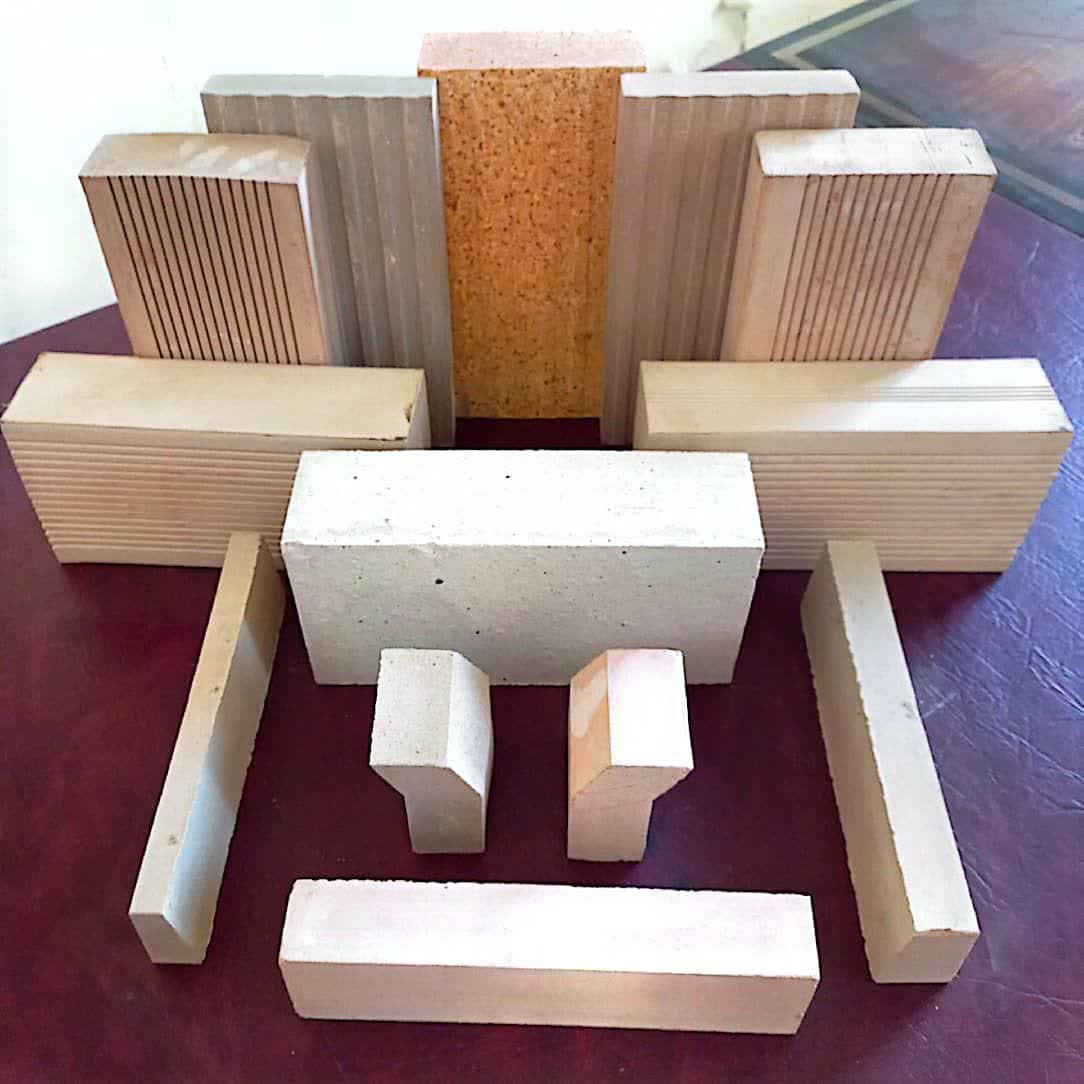
Anti-acid brick and tile of Aria anti-acid Alborz company, resistant to acid environments and other corrosive chemical compounds for use in petrochemical, power plant and food industries, chemical corrosion resistant tile or anti-acid tile produced by Pasargad Refractory Materials Company, a completely vitrified tile with Water absorption is very low and dissolution in acid is low. It is produced on the basis of mineral clay compounds and by pressing or extrusion method in this company’s factory. These products are produced with a thickness of 20-30 mm, of which 25 mm is more common.
All the quality tests of this product are performed in accredited laboratories in addition to the laboratory located in the quality control unit of the factory. The compressive strength of these products is favorable (about 70 MPa) and its bending strength is about 12 MPa. The dissolution in acid of this product is very low, so that the amount of dissolution in acid during 48 hours in 98% sulfuric acid was less than 0.5%.
This tile is used in environments exposed to all kinds of acids (except hydrofluoric acid HF). It is also used in parts that require mechanical resistance, such as the floor of industrial warehouses where light vehicles and forklifts travel. In acid and chemical pools and floor and wall covering of industrial halls in various industries including petrochemical and chemical industries. It is used in dairy and soft drink factories, acid factories and galvanized sheets as well as power plants.
To install and tie this type of anti-acid tile. Must use anti-acid mortars. This company also produces some types of these types of mortars domestically. The common size of this type of tile is 233 x 117 x 25 mm. The tile floor has 3 mm thick grooves for a stronger connection with the mortar below.
Important points of implementing acid-proof tiles:
before execution
If the concrete surface under the work is loose or has depressions, these parts should be filled with cement plaster. If the destruction is severe and the acid has penetrated deep into the concrete surface, the concrete surface must be destroyed and the concrete must be re-implemented. The slopes must be checked. If the slope is not applied, it is better to implement it with cement plaster. The work surface must be dry and free of grease and oil.
Before implementation, pay attention to the watertightness of the structure and the minimum temperature required for installation
Membrane layer
Inside open tanks, pits and collection tanks, due to the permanent presence of corrosive substances, the use of a resin layer or a plastic sheet or a rubber layer as a membrane is not enough, and ceramic or carbon bricks or tiles must be applied on it. to be
There should not be a long time between the time of applying the membrane and the time of applying the anti-acid tile, and mechanical load should not be applied to it.
Anti-acid tile arrangement
In general, the grooves on the anti-acid tiles have better adhesion due to the mechanical connection between the tile and the mortar. The maximum depth of the depression should not be more than 5 mm because it may cause the creation of empty spaces under the tile, which is very dangerous, and on the other hand, the consumption of mortar is more.
The way to arrange the tile is that the longitudinal band is in the direction of the slope of the floor. If the walls are not tiled, the tile should be stretched at least 10 cm from the wall
Cover the back of the tile with mortar first, then install
The thickness of the executive mortar is between 5-10 mils
The mortar band between the tiles is filled after etching
The thickness of the tile band is between 5-20 mils (the best value is 5-8 mils). The tile band is very important and is always subject to corrosion and damage
Tiling of tiles should be done a few days after installing the tiles
Anti-acid mortar:
For the implementation of anti-acid tiles, you need anti-acid mortar or anti-acid adhesive. This company produces some types of anti-acid mortars. The type of mortar is selected according to the environmental conditions and corrosive factors. The most important type of mortar is required to connect anti-acid tiles. Acid is an explosive mortar, which is a type of synthetic resin mortar and is resistant to sulfuric acid corrosion up to 60%. Also, silicate mortar should be used in areas where there are stronger acids.
packing :
The packaging of this product should be done in a wooden pallet and a plastic cover along with a plastic belt, and there is a cardboard sheet between the layers.

